Food Police: Who Are They and How to Defy Them
- October 10, 2023
- Last Updated: March 14, 2025
- 6 Comments
- Intuitive Eating
A big key in intuitive eating is learning to defy and fight back against the food police and the negative messages they send you. So, who are the food police? This post will review what you need to know.
As an Amazon Associate, I may earn from qualifying purchases. You can read more here about our Disclaimer and Privacy Page.
Learning to challenge the food police can be challenging if you don’t quite know who they are, and how they appear in your eating habits.
This post will focus on identifying the food police, so you can learn to challenge the dieting thoughts that they impart.
Who is the Food Police?
The 4th principle of intuitive eating is all about how to challenge the food police. That pesky food police, who designates whether goods are “good” or “bad”!
But, really, what is the food police meaning, anyway?
The food police is aligned with diet culture, and tries to keep everything in line with the toxic diet culture.
While the “food police” is a made-up term, it can be attributed to both physical, mental and emotional facets around us.

For example, it may refer to a physical person labeling food as “good” or “bad,” or making you feel a certain way around food.
Even someone at the gym sharing that you should exercise to “burn off” what you ate.
It may refer to social media, or printed media or advertisements sharing the thin ideal, promoting 1200 calorie diets and other fad diets.
It may even refer to the emotional turmoil you experience when deciding what to eat, when reviewing the rules you’ve set for yourself.
Some examples of the food police that may contribute to the mental toll include:
- No food after dinner
- Only fruit is allowed for a snack
- Carbs are bad – gluten-free is healthy
- No dessert unless I exercise
In short, the food police are all around us.
The negative voices in our heads shaming our bodies or ourselves for eating a certain food.
Labeling foods. Imparting stigma around foods. All of these examples link back to the food police.
Here is how Evelyn Tribole and Elyse Resch, the Intuitive Eating authors, define the food police.
The Food Police monitor the unreasonable rules that dieting has created. Chasing the Food Police away is a critical step in returning to intuitive eating.
Evelyn Tribole and Elyse Resch
Sadly, it has become a normal practice to feel guilty after eating. This is due to the food police and toxic culture that promotes the thin body ideal.
Think about how crazy that sounds – we feel guilty, shameful and bad about ourselves after actually enjoying a food we like!
Grab Our Meal Prep Ebook to Finally Conquer Meal Prep in the Kitchen
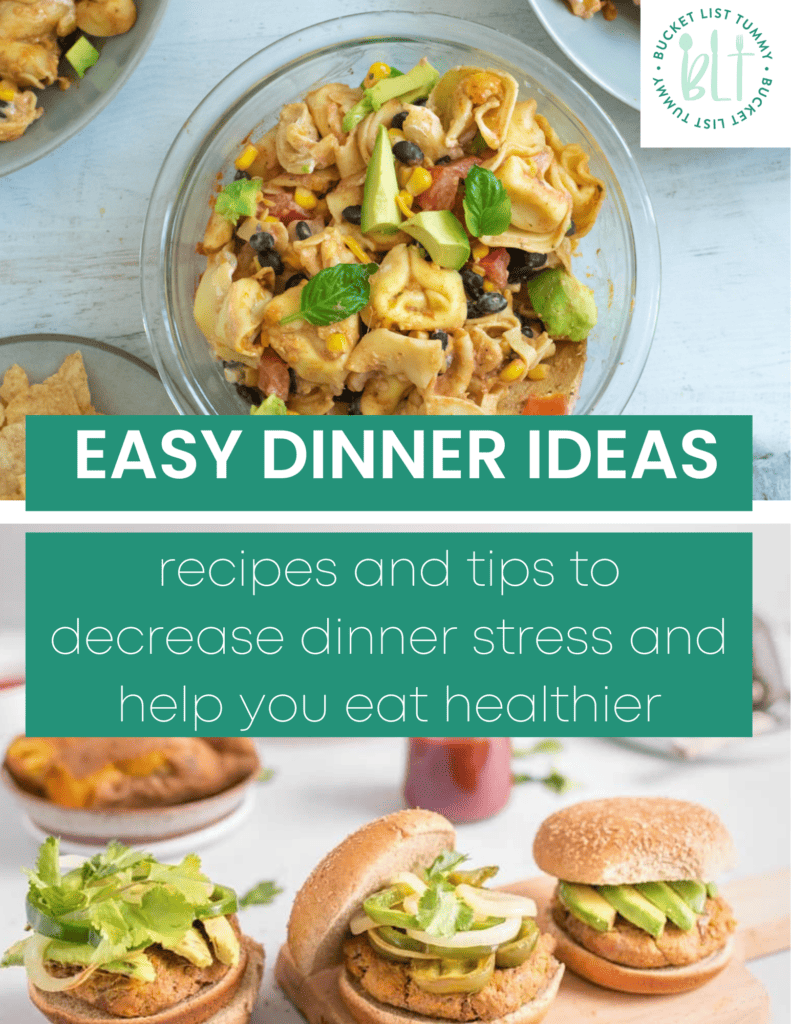
Sample Food Police Thoughts and Comments
I love using these examples when talking about intuitive eating for teens, because I really believe the pressure comes up alot in that age group.
The food police is often all or nothing, black or white. Very extreme.
- “I thought you were trying to lose weight. How can you eat that?”
- “Sugar is so bad for you and addictive.”
- “Cheese is high in fat and loaded with cholesterol. You shouldn’t eat it.”
- “You shouldn’t eat after 8pm because then you’ll gain fat overnight.”
- “Walking doesn’t burn enough calories. If you didn’t hate the workout, you didn’t work hard enough.”
- “Eating healthy is a matter of willpower.”
- “Dairy is bad.”
Know that the food police voices aren’t exclusive for dieters. We’re all human, so even if you aren’t dieting, you may hear these voices sometimes.
You have to work actively to quiet them, challenge these thoughts and train your brain to go down a different path through cognitive restructuring.
Here are some ideas for how to respond to diet talk.
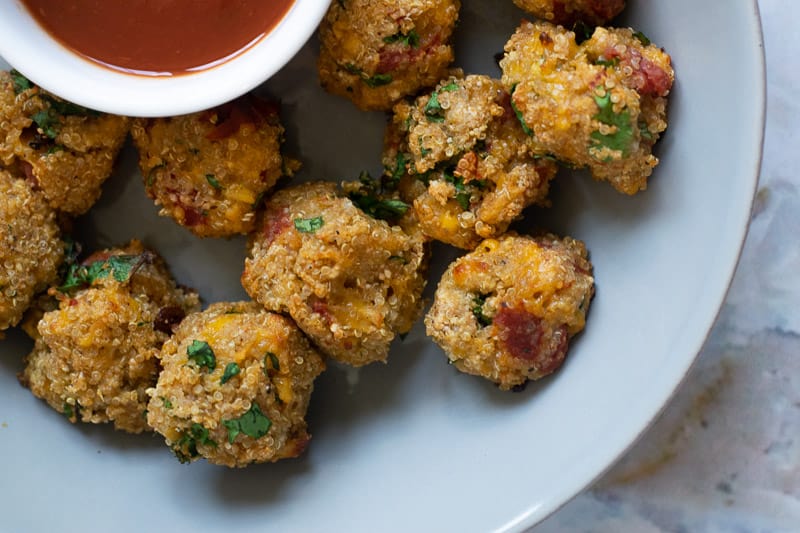
The food police and diet culture are very pertinent in sports and running, especially.
For example, believing your body has to look a certain way to excel is exemplified through diet culture and the food police.
The food police will make you think you have to eat less on days you don’t exercise, even if you feel hungry all the time.
The food police may also surface when you’re out with your teammates or friends.
Maybe they’re eating something that you deem off limits, and it affects your whole night or experience.
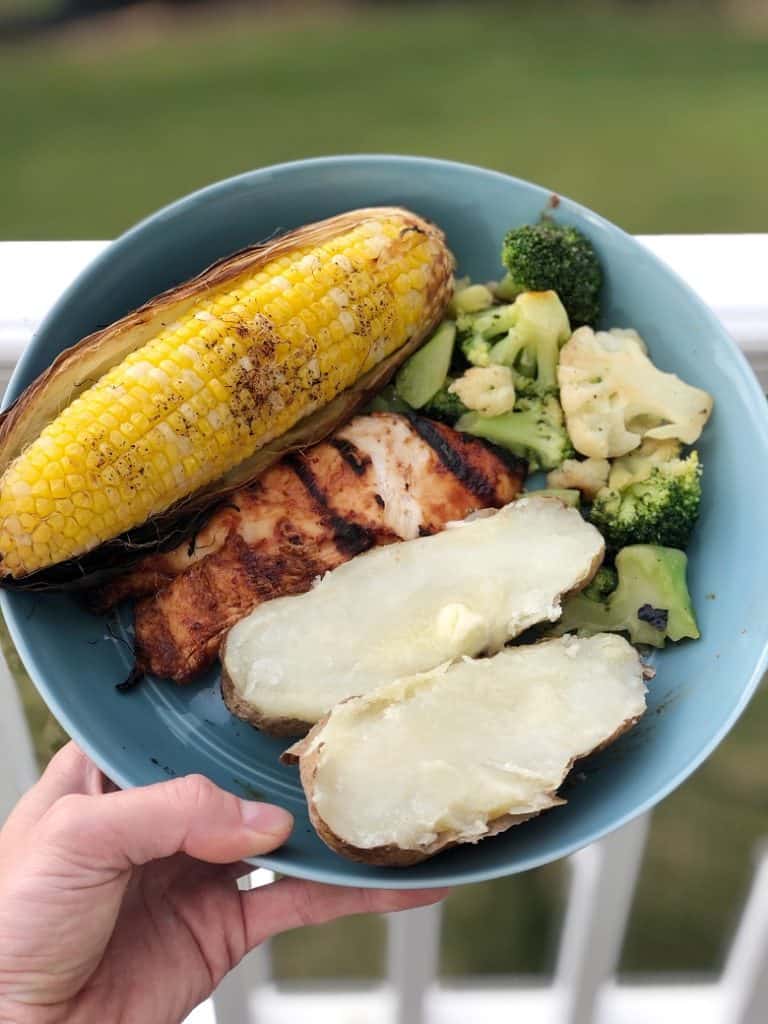
Or, maybe they are imposing certain food rules and you find yourself comparing yourself to them, creating guilt and shame.
The next thing you know, you’re setting up silly food rules to make yourself feel better.
The Food Police Takes Away Pleasure Around Food
Life is short, and feeling guilt and shame for taking part in enjoyable activities and pleasurable food totally impacts the quality of life.
So, challenging the food police is imperative and can really help you understand your carbohydrates cravings as well.

A study out of the University of Toronto found that even the act of dieting appears to emphasize the focus of guilt and guilt-free in terms of food attributes.
One out of every four dieters used both “guilt” and “no guilt” in their labeling of food, compared to just one out of 25 non-dieters.
In other words, dieting teaches us to feel guilty for eating foods that we deem “bad” or off limits, like highly caloric foods, or even foods we enjoy.
The act of viewing eating as a pleasurable activity (for which it is/should be) goes out the window with the food police around.
Inner Voices Around Food
It’s helpful to understand some of the different food police voices described in the intuitive eating book that impact our food choices in order to really understand how the food police works to influence us.
Learning more about these can be a great health and wellness resolution, rather than setting weight loss goals that are heard to maintain.
I’ve also reviewed these in my Hunger ebook to help share how they may be showing up in your life.
- Food Police – The food police is an inner “bully” voice (not a helpful one) developed through dieting. It determines if you are “good” or “bad” based on your food choices, and represents the sum of your dieting and food rules.
- Nutrition Informant – The nutrition informant offers evidence to keep you in line with dieting, usually with exaggeration and urgent claims, such as “All sweeteners are bad, don’t eat any of them.” The nutrition informant voice, though it’s based on nutrition, is not helpful until it transitions into the nutrition ally voice. Keep reading.
- Diet Rebel – The diet rebel is our natural way of rebelling against diet rules that are imposed on us. If diet culture tells us not to eat cookies, the diet rebel may stuff in as many as possible, and then feel physically ill later. The diet rebel voice isn’t helpful because it often leaves you feeling powerless, carrying out “threats” that you may not actually want to carry out or feel good doing.
- Nutrition Ally – The nutrition ally is interested in healthy eating, like the nutrition informant, however, it has no hidden agenda. Consider you’re in the grocery store looking at different brands of Greek yogurt. One is full fat and one is reduced fat. You may opt for the reduced-fat version since you have high cholesterol and a family history of heart disease. The nutrition ally voice is helpful and usually puts you at ease, rather than the informant voice, which is judgemental and critical.
- Food Anthropologist – The food anthropologist is the best example of neutrality as a neutral observer. This voice makes observations without any judgment. For example, “I’m not usually hungry at 12 but I skipped breakfast today and felt extra hungry.” There’s no judgment in that statement, but it’s telling that you realize you may feel extra hungry if you skip a meal.
- The Nurturer – I like to compare the nurturer’s voice to that of my grandmother. It’s soft and gentle with a soothing quality. The nurturer can provide reassurance when you need it without judgment or scolding. An example would be reminding yourself that it’s okay to eat dessert, and eating dessert is normal. Or, taking time to acknowledge the progress you’re making every day even if food choices still feel difficult.
Sometimes, these voices progress in stages, and there may be times that you demonstrate each of them throughout the day.
The goal is to learn to tune in MORE to the helpful voices, like the nutrition ally, food anthropologist and nurturer, as you further your relationship with food and intuitive eating.
Here’s an excerpt diagram from my workbook.

You can read more about each voice with more examples of how they play into your positive or negative self talk through my workbook about hunger and fullness.
How To Challenge The Food Police
Here are some things you can practice when challenging the food police.
- Be Self Aware – Try to notice which voice is the strongest when you have a thought about food. Are you feeling shamed, judged or criticism? If so, it’s probably the food police voice.
- Check In With Yourself – Some questions to try asking yourself in the moment might be:
- Am I having intense feelings? Are they repetitive?
- What am I thinking that’s actually causing me to feel this way? What kind of negative self talk examples am I telling myself?
- Truly think, what is actually true or correct about this food belief or thought? Generally, there are some distorted beliefs that are exaggerating this food thought.
- Reframe the Distorted Thoughts to Something Rational – Challenge yourself to reframe and replace the distorted thoughts. So, if the thought is, “All sugar is toxic and will give me diabetes,” maybe you could reframe it to, “Sugar can add a pleasurable taste to many foods. I know that eating sweets every now and then won’t give me diabetes.”
- Avoid Black and White Thinking – Generally, the food police is coming at you with a thought that is very black and white. How can you see it in the gray? Give yourself some grace and remember that nothing needs to be all-or-nothing.

Allow yourself to eat all foods, including foods you like, foods that are (or used to be) off-limits, and foods that make you feel good.
Allow yourself to eat as much as you need to, especially in the beginning, as you work to re-establish trust in your body and its cues.
- Why Fad Diets Don’t Work
- How to Reject the Diet Mentality for Athletes
- How to Honor Your Hunger
- Making peace with food
- Feel Your Fullness.
Check out my 60 page hands-on workbook all about hunger and fullness.
References:
- Tribole, E. and Resch, E. (2012). Intuitive eating, 3rd edition. New York, NY: St. Martin’s Griffin.
- King, G.A., Herman, C.P., and Polivy, J. Food Perception in Dieters and Non-dieters. Appetite, 8 (1987):147-158.
Explore More Recipes
Intuitive EatingSupport Bucket List Tummy

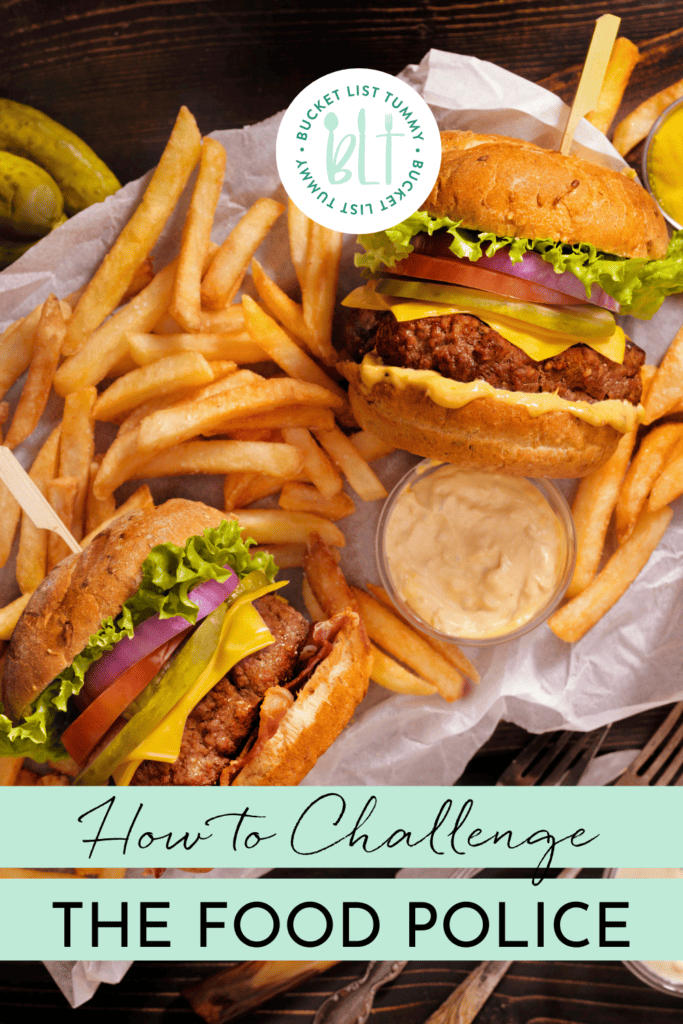


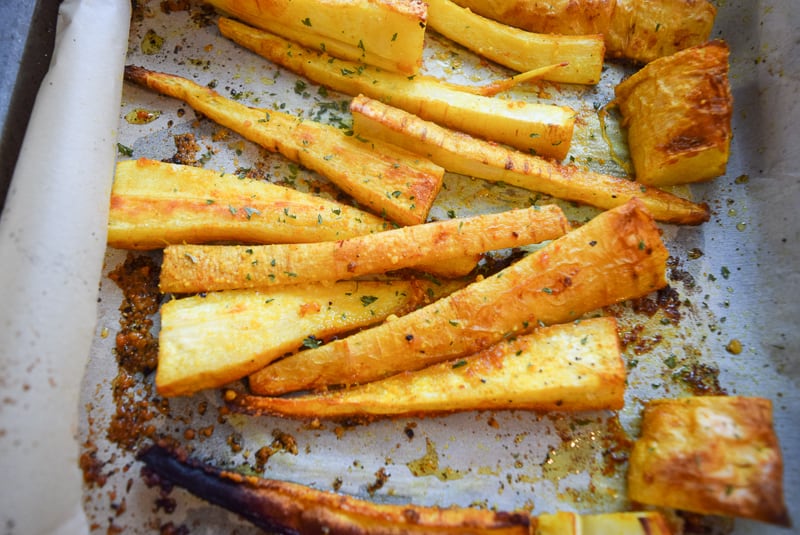
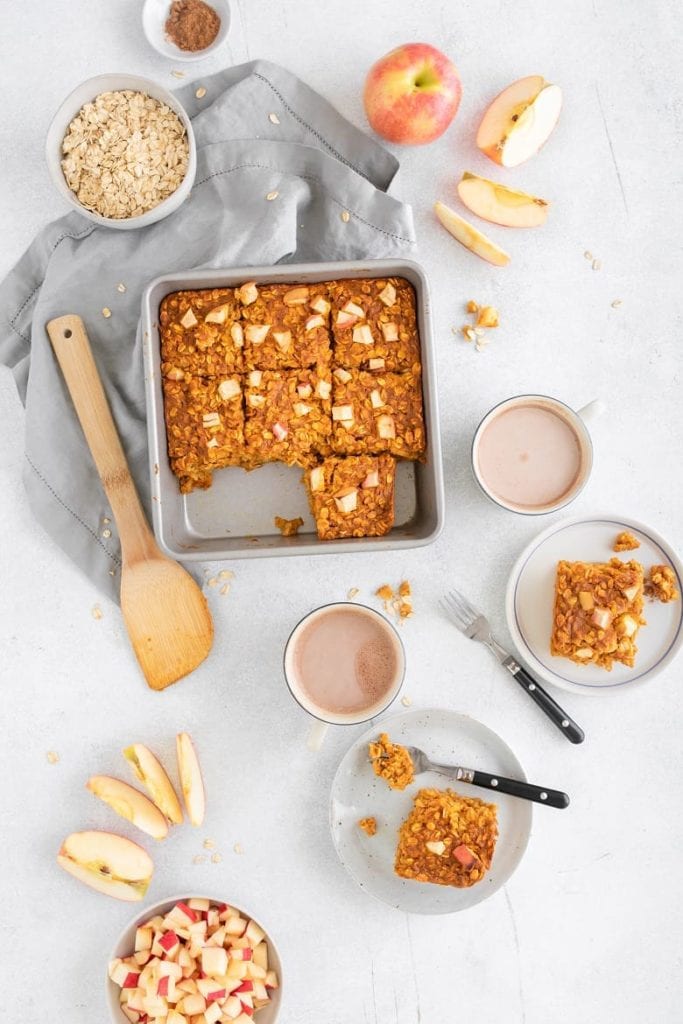

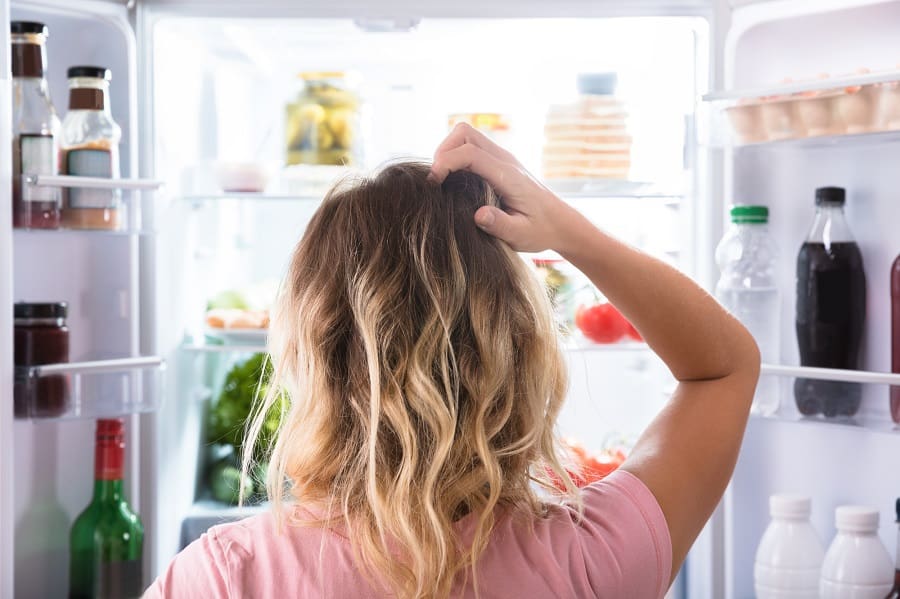
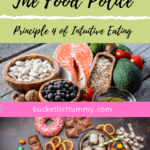
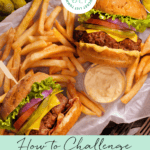
Like This Content?
Support Bucket List TummyI have been a victim of the Food Police, Sarah…I need a get out of jail free card!